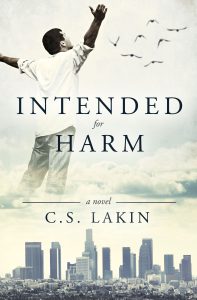Masterful Voice in Novels Part 5
In this exploration on masterful voice, we’ve been looking at the role microtension plays. Microtension is all about adding tension at the micro level: the level of phrasing and word choice and sentences. It is all about creating tension in your reader by continually surprising him on a subtle level.
Compare this to the macro level of tension created by plot developments and twists, those “big picture” items in your novel.
Yes, you do need a great plot and wonderful characters. But if you leave out the microtension, you risk deflating your terrific story. Kind of like a tiny leak in a hot air balloon. Eventually all that air seeping out will cause the balloon to crash to earth. Microtension keeps every scene afloat.
These last couple of weeks we’ve been looking at passages from Colum McCann’s award-winning novel Let the Great World Spin, a favorite book of mine, mostly because of the masterful voice of all his many, diverse characters.
I notice in a lot of novels I critique and edit a lack of masterful voice. Every character sounds the same. Meaning, they all sound like the author’s writing style, which is often boring. I get that beginning fiction writers are often just trying to nail the basics of crafting a scene and balancing narrative, action, and dialogue.
But I also see this a lot with multipublished authors. While a strong “character voice” isn’t always evident in many best sellers across many genres, without that strong “voice,” it is harder to find success and devoted readers. A writer has to work extra hard, lacking great characters with unique and interesting voices, to pull off a great novel.
And let’s face it, boring is boring. Do you ever get the feeling, when reading book #7 from best-selling “Author X” that the author is rushing, perhaps bored herself with her story, and isn’t taking the time to write masterfully? That feeling, that the author doesn’t care enough to write the very best book possible, makes me feel cheated. Not that I paid a million dollars for her book. But I am expected to spend maybe ten of my very precious hours reading said book. What’s that worth? As the American Express commercial says: “Priceless.”
We shouldn’t gyp our readers by writing boring scenes.
Let’s take a look at a brief passage from Let the Great World Spin.
Hooking was born in me. That’s no exaggeration. I never wanted no square job. I lived right across from the stroll on Prospect Avenue and East Thirty-first. From my bedroom window I could see the girls work. I was eight. They wore red high heels and hair combed high.
The daddies went by on their way to the Turkish hotel. They caught dates for their girls. They wore hats big enough to dance in.
Every pimp movie you’ve ever seen has them pulling up in a Cadillac. It’s true. Daddies drive Kitties. They like whitewall tires. The fuzzy dice don’t happen so often, though.
I put on my first lipstick when I was nine. Shiny in the mirror. My mother’s blue boots were too big for me at eleven. I could’ve hid down inside them and popped my head out.
When I was thirteen I already had my hands on the hip of a man in a raspberry suit. He had a waist like a lady’s, but he hit me hard. His name was Fine. He loved me so much, he didn’t put me on the stroll, he said he was grooming me.
Tillie’s voice is authentic but not stereotyped, (which is another trap beginning writers fall into). In this opening about Tillie, after learning of her rap sheet, we get a quick understanding of her character and voice. Yes, it’s backstory, but it isn’t boring. The unexpected phrases make this simple narrative zing: the hats big enough to dance in, the image of her hiding in a boot and popping her head out. There are bits of color, adjectives that shake up an otherwise predictable type of description: the red high heels, the raspberry suit, her mother’s blue boots.
Throw Your Pages into the Air
One thing Donald Maass suggested at the weeklong Breakout Novel Intensive that I attended years back was for us to throw the pages of our manuscript into the air, pick up one page off the floor, and infuse it with microtension. Then pick up another random page and do the same. Repeat.
Why is this a great thing to do? Because when we work on our drafts, starting at page 1, we get mired in the story development, and we also tend to “front-end” a lot of the work. Meaning, we go over those opening scenes and hone them to perfection. But what about page 259? Or page 361? If we always start at the beginning, those later pages don’t get the attention they need.
Ever since I heard that advice, I’ve adopted it into my writing life. I always edit scenes out of order. I pick random pages to work on, focusing on the choice of words and phrases, infusing that one page with microtension.
 Doing that isn’t a substitution for tackling the big-picture issues of a novel. You have to first ensure your structure is solid and all your scenes are the right ones in the right places.
Doing that isn’t a substitution for tackling the big-picture issues of a novel. You have to first ensure your structure is solid and all your scenes are the right ones in the right places.
But that’s where a lot of writers quit. They don’t go that extra mile to tackle the microtension.
I shared a passage from my novel Intended for Harm in an earlier post, in which I stated that McCann’s novel was the inspiration for my stream of consciousness style as well as for crafting the voices of my characters. What inspired me so much was the way his characters’ thoughts spilled over the pages so masterfully. I don’t dare claim to be half as masterful as McCann, but take a look at some of these passages to see how I infused those small bits of microtension in order to take the writing out of the realm of boring and predictable.
At the workshop, Maass asked for samples to share in our microtension workshop. I was awed and humbled when he read my passage and expressed what looked like astonishment. He reread it, then looked at me and said, “You do know how terrific this passage is?” I gulped and nodded meekly. Yes, it was a moment.
Here is the brief passage I submitted. In this scene, Simon, who is about twelve (I can’t recall at this point), hates his brother Joey, who is about five. His father and stepmother love Joey and favor him over the other boys, and Simon is sick of it.
Joey startled him out of his sour thoughts by a touch on the shoulder.
“Okay, so what am I sp’osed to see?” Joey asked, his voice now strangely calm. Simon looked in Joey’s eyes. His brother, now so naïve and trusting and gullible, who doesn’t see it coming. The sparkle in Joey’s eyes, with the sun practically smiling down upon him, strengthened Simon’s nerve. Well, that cute little face is about to get ugly. Serves him right. Serves them all right. He let the hurt and anger pump his resolve, until it felt about to burst through his chest.
Without allowing another second to stand between Simon and his purpose, he grabbed Joey by the shoulders, gripped his shirt tightly in both hands, swiveled him around, and flung him off the roof, the world screaming at him but Joey silent, not making a sound, or a cry of surprise, almost as if he knew it was coming and had nothing at all to say about it—
Simon froze at the edge of the roof, shaking so hard he stumbled back, sought purchase for his feet, fell back onto the shingles as a smack sailed up to him from below, and he raked his trembling fingers through his hair, the impact of the moment catching up to him in real time, the reality of his action overlying the many times he’d practiced it in his head, his mind reeling, dizzy, feelings of exuberance clashing with the terror of what he had done, staring at his hands and replaying their graceful movement, their strength, feeling an overwhelming sense of relief coupled with dread.
There’s a lot going on in this moment, as the incident rightly sends Simon’s thoughts careening. I mentioned how incongruities create microtension, and I packed this passage full of them. The world is screaming at Simon, but Joey is silent as he’s thrown off the roof. We would expect a child to scream, yet he doesn’t and instead it is the world screaming at Simon, which is also curious because it’s a figurative phrase that should give the reader pause.
You see the conflicting feelings, with Simon experiencing exuberance and terror together. The phase “graceful movement” is another incongruous expression, for it doesn’t feel “right” for Simon to consider what he did a “graceful” movement. And there’s the relief (he’s finally done it, gotten rid of his pesky brother) coupled with dread.
This is heavy inner conflict, “the human heart in conflict with itself,” that Faulkner spoke about. Simon couldn’t be more internally conflicted, could he?
Here’s one last passage. Try to spot the bits of microtension I added in: those unexpected bits that make the moment stand out.
In this scene, Jake accidentally slices his leg open with a Skilsaw. Young Joey, who has already shown signs of miraculous power, touches Dad’s leg and is about to close the wound.
“Daddy,” Joey said, lowering down next to him.
Jake wanted to push him away, out of sight and away from the trajectory of the blood, knowing what a horror this was to witness, a shock, something terrifying to his five-year-old son. But upon closer inspection, Jake noticed between waves of anguish Joey’s beatific smile and all he could think was, why is he smiling? Maybe Jake looked funny, lying there, covered in blood. Maybe Joey just didn’t understand the severity of the injury, or thought Jake was playing, that the blood was red paint.
“Joey . . . move back, Daddy’s hurt.”
“I know.”
Joey squatted close, reached out a hand to Jake’s leg.
“No,” Jake said. “Don’t—”
Jake felt pressure along the gash, then a thousand needles biting into flesh, skyrocketing the pain. Jake squeezed his eyes, frantic, confused.
“Joey, stop!”
Did his son even hear him? Maybe the words were coming out garbled. He tried to move, inch along the grass.
“Wait,” Joey commanded. Jake froze at the authoritative sound of his son’s voice.
“Almost done,” he added.
Done? Done? Surely Jake was hallucinating. His child leaning over him, the sun wheeling above in the sky, birds winging around the tree, cackling, laughing. His lifeblood rushing out of him in a glorious stream to soak into the earth, as his spirit deflated, the ambulance too late, not a siren riding on the suffocating summer air, only heat waves rippling, rippling along with the pain, which even now began to ebb with the tide of his life, fading, dissipating, easing, his last moments alive, here in his backyard.
Suddenly, Jake inhaled a deep breath, pulled it with force deep into his lungs, felt them inflate with life, with renewal. He managed to turn his head; time hurrying to catch up to present speed, seconds no longer hours. Jake now knew he was surely hallucinating. Joey’s hands drenched in blood, red gloves up to his wrists, and his son’s beatific smile, shining down upon him in such innocence and incongruence. Was Joey addled? Jake couldn’t reconcile that smile with this event, the two elements clashing, jarring Jake’s heart, saddening him beyond measure.
The inner conflict is front and center here. Jake can’t reconcile Joey’s actions and demeanor with the reality of the injury. Jake thinks he is dying, and his son is acting crazy. Joey’s actions in themselves create microtension because they are unexpected and bewildering.
The stream of consciousness style of writing is meant to create microtension for its unexpected structure. Jake is struggling with a myriad of feelings, physical and emotional, and as with the previous passage, the pacing is ramped up to add to the tension, which is useful when showing high-action moments in a story. Some key word choices, such as glorious and red gloves, add more spark.
I hope these posts on masterful voice and microtension have given you inspiration and some ideas of how you might infuse every page in your novel with conflict and tension. Try it! See if it doesn’t get you a few steps closer to being a masterful writer.












Your posts are so helpful, thank you. Joey and Simon on the roof, a very powerful passage!
Reading this post has helped me to realize where modern writers are coming from. What you’re calling micro-tension I would call melodrama — and I don’t like it in books I’m reading. To each her own, I guess.
I’m an impatient sort; I often wish the writer would have just told the story, omitting half the melodrama and all the repetitious angst. Like, “You’ve already told us the character feels angry or worried or attracted, so stop restating it every few paragraphs.”
I’m probably doomed to write boring stories myself — after all, you write what you like to read. But I’ll definitely try using some of what you’ve written to spice up my own writing.
Also, now that I know writers are being taught to add this into their work — it’s not that the book lacked a good editor — I’ll have more patience. I usually do a lot of skipping over all those extra words to get to the real action.
Hi Christine, microtension is not melodrama. Not at all. It’s the tiny things via the language and action that perk interest. That raise curiosity and spark attention. It’s very important to have a novel infused with microtension or the read will risk being predictable and boring. Microtension is also not repetition. Quite the opposite. Repetiion is boring. Microtension creates tension because it’s not expected, stands out, is incongruous. Study great novels and highlight those bits and that will help you get a better sense of it.
Thanks for clarifying. I can see from your examples what you mean and it is worth a deeper study. I’ve seen writers use this skillfully, as you describe, even throwing weather details in for sinister effect.
I have a problem with writers who try to create tension by rehashing the character’s feelings. (I find modern British writers especially tend to go this route.) Just finished a crime novel that was +/- 70% main character musings; 30% dialogue and action.
If an editor cut out all the variations of “He loved her but dare not let himself think of marrying her because she’s a toff and he’s only a policeman” the word count would drop by about 20%. In the end his love interest was weary of this, too, and told him to propose. That was cute!
I see the play on the words, Susanne, to force the reader to stop and take notice. Your passages are scary and well-written. Thanks for offering an explanation with clear examples.